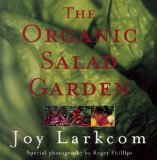


Join "Garden Notes" and plan for Harvest Success as you track and record your gardening progress. Your Free Personal Garden Journal has pages for jotting down notes on the seeds you start, your new plantings, when you fertilized, and even a graph to plot a new garden.
I didn't want to see another internet "eBook" on growing anything, but my husband signed up for Kacper's free report and I have to tell you, it is WELL worth the read. If you think you know everything about growing tomatoes, I challenge you to read Kacper's report. HIGHLY recommended!

Based entirely on organic gardening principles. This says it all. Joy's book has been fully revised and updated and includes extensive new reading, particularly on oriental and fruiting vegetables, and did I mention, is now entirely based on organic gardening practices. Read More...
